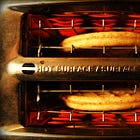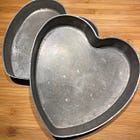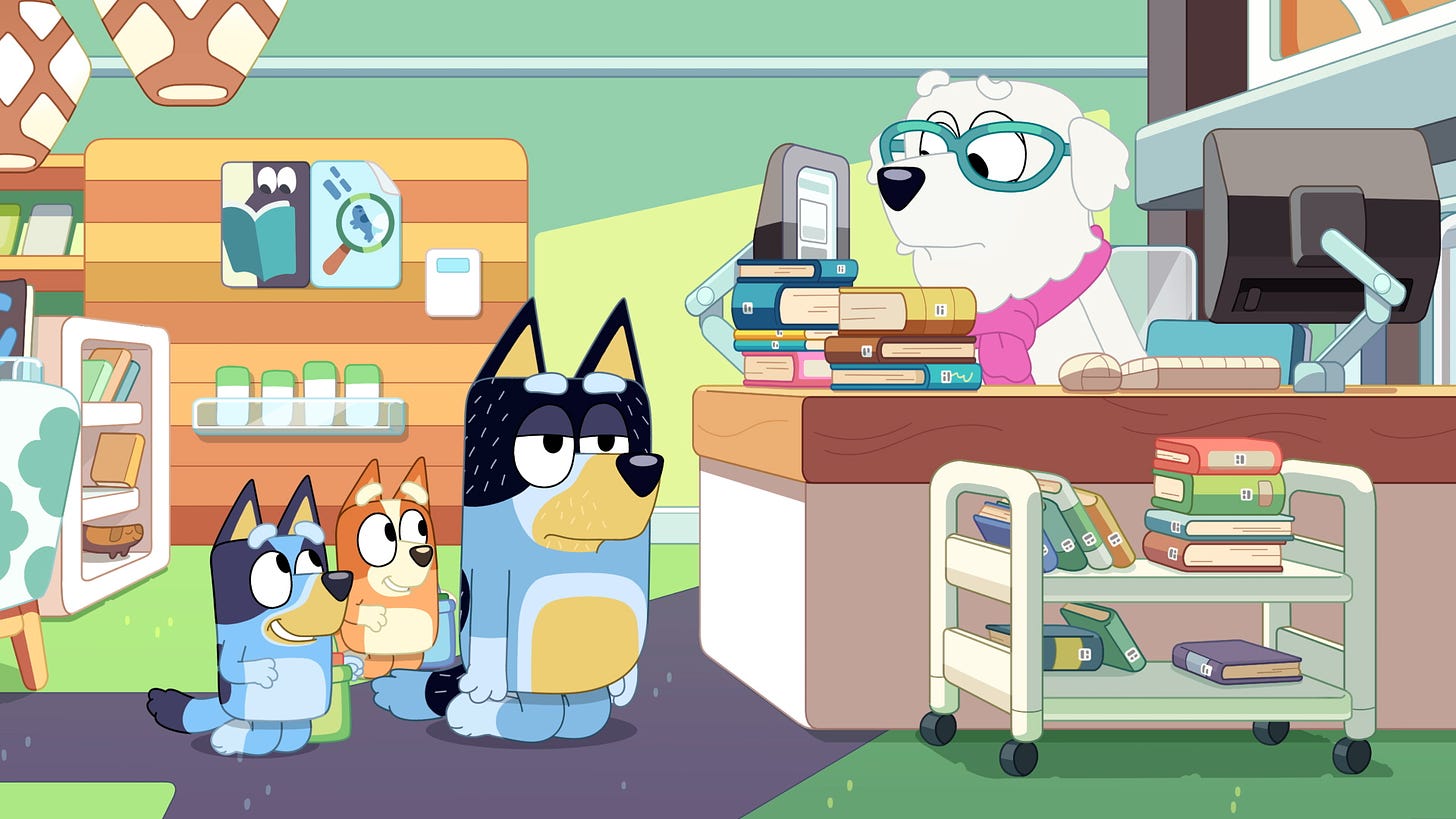The ‘theme’ of this newsletter has always been purposefully vague.
I’ve never wanted to write exclusively about one topic, even if that’d probably make it a lot easier to sell people on what I’m doing here. I wouldn’t be approaching 700 newsletters published here if I did; I would’ve burned out long ago.
When pressed, I’ve always said that the only real theme of this newsletter is me. I enjoy food and cooking, so I frequently write about that (and share recipes.) I’m an avid sports fan, so sometimes I’ll write about about sports. I’m an architect in my day job, and I’ll occasionally use that as cover to rip off a rant about an awful building.
Right at the center of all of this is that fact that I’m a Dad—and I use that word in two senses: first, and perhaps more central to this newsletter, I’m a Dad culturally. I enjoy cornball jokes, reading books about shipwrecks, and undertaking needlessly complex projects with no clear aim or benefit. In that sense, I am unquestionably and terminally a Dad.
Second, though—and more important to my actual life—I’m a dad in the literal sense, father to two grade-school-age children.
The latter role has provided a lot of material for my writing over the years.
I’ve written about how an edgy, peak-pandemic day of anxiety turned into a lovely moment of bravery for my then-very-young child:
I’ve crafted a somber meditation on what it feels like to raise children in a world full of capricious and senseless violence:
I’ve written silly stuff, like assembling a field guide to the different types of parents you’ll meet at childrens’ birthday parties1 or scripting a ten-minute play of my fumbling attempts to get the kids fed, dressed and out the door on time in the morning:
I’ve gotten sentimental (some readers have taken, not entirely incorrectly, to referring to these as my “emotional terrorism” posts) about things like birthday cakes:
And, I’ve reflected on the at-times crushing feeling (not uncommon among parents, I trust) that you’re failing every day:
I’ve always enjoyed writing these pieces—they’re cathartic for me to write, and they’re as close as I can come to freezing those fleeting, ephemeral and easily-forgettable day-to-day moments of parenthood in time. They’ve always gotten a strong reaction from readers, too. I’d like to attribute that to my skill as a writer (dubious), but I think that it’s really because it’s heartening to know that there are people out there going through the same things that you are.
Too many models of present-day fatherhood are laden down with weirdly aggressive ideas of masculinity or suspiciously-polished veeners of “I’ve got it all figured out and here’s what you should do if you want to be a good parent like me” hucksterism. It can be hard to find voices saying “hey, I love my kids dearly and I’m trying my best, but I screw it up a good bit of the time, too” outside of Bandit Heeler on Bluey.
My attempts—however successful—to be embody that kind of voice have long been one of the main tentpoles of whatever it is I’m doing here.
I’ve always taken pains to keep some boundaries in my writing. I’ve never shared my kids’ names or faces, and I’m careful not to tell any story that I think would be embarrassing or painful to them down the road. It’s far too easy to overshare on the internet, and whenever I’ve had doubts, I’ve kept it in the chamber. It’s possible to tell a story without putting it all on the table.
It’s gotten harder, though.
My kids are seven and eight years old, and despite their inability to drive a car, file their taxes or open sealed pickle jars, they’re not babies anymore—they’re full-fledged people with thoughts and minds all their own.
I suppose there comes a moment for every parent where you realize that your kids are now existing outside of the world you’ve spent years crafting around them, a world where you’re the sun and the moon, and I think I’ve reached that point. My kids go to school each day and live in a world that I only hear about second-hand, and they come how with their own sets of cultural referenes, their own inscrutable slang, their own narratives and their own interests. I don’t know a thing about Minecraft, but they sure do, and this weekend my son expressed amazement that I didn’t know any of the names on a list of YouTubers that he was rattling off in the backseat of the car.
(I’ve heard of Mr. Beast. I read about him in The Washington Post.)
Heck, they’ve even decided that they’re fans of the University of Kentucky Wildcats, something is absolutely not my doing. (I am thankful, at least, that they didn’t pick the University of Louisville. I want them to be their own people, but a parent has to step in at a certain point.)
It’s in these moments that I’ve come to a sobering realization: I’m not the main character in this story anymore.
The old saw that writers should “write what you know” is oversold. If everyone held to that, Mary Shelley never would’ve written Frankenstein. You should, however, take pains as a writer to make sure that the story you’re telling is yours to tell, and that’s where I’ve found it a lot harder to keep writing on this topic. I don’t regret what I’ve written so far, and I don’t think I’ve overstepped any real bounds yet. I’ve realized that some stories aren’t up to me to finish, though.
I’m always going to be a Dad—there’s too many books about shipwrecks that I haven’t read yet—and I’m always going to be their Dad. Getting that second part right means knowing when to talk, but also knowing when to shut up and listen.
Besides, they still give awards for Best Supporting Actor.
—Scott Hines (@actioncookbook)
My kids attended four birthday parties in two days this weekend. That’s too much. I need a moratorium on birthdays until at least late March.











What I’m hearing is that we all end up becoming John Mahoney on Frasier. Not the star, maybe not supporting character, but we get a comfy chair and the best lines.
Maybe not the point of the post, but did anyone else start singing "The Wreck of the Edmund Fitzgerald" when seeing the line regarding reading books about shipwrecks?